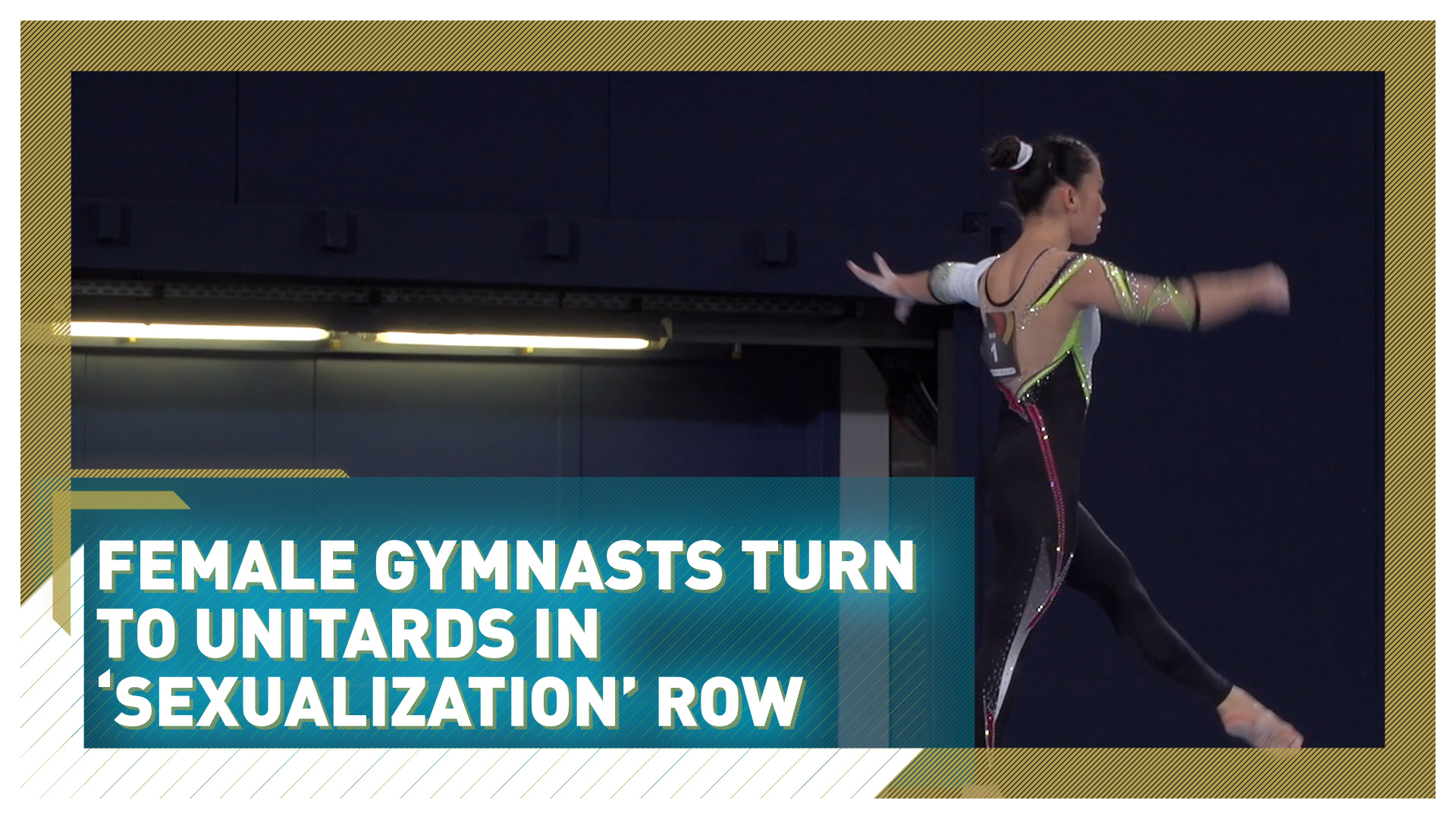03:32

With toes pointed, back straight and hair pinned up, Sarah Voss waved to the cheering crowd at Munich's Olympic Halle Stadium as her name was announced across the loudspeakers.
The 21-year-old gymnast was thrilled to make it on to the German Women's Olympic team for the first time. "It means the world to me," she told CGTN Europe. "Since I was a little child, I have been thinking about the Olympics."
READ MORE
Is it too early to lift COVID-19 restrictions?
Paris's painters take city to court
Turbulent start to EU presidency
Olympics and COVID-19
But these Games will be different from previous Olympics. Japan has implemented strict COVID-19 protective measures to save the events from becoming "super spreaders."
Tokyo declared a new state of emergency on Thursday because of the pandemic and spectators may be banned from watching the Games live. A previous rule created a cap of 10,000 spectators for each event.
Alcohol will also be banned and athletes will not be allowed to mix outside their competitions. A series of manuals on COVID-19 dos and don'ts were distributed to each athlete and their coach before the state of emergency.
"I am not concerned," Voss said. "I know there is a very high hygiene concept, so everyone is going to be safe, I guess. We are going to be tested all day. We are going to be in our bubble. We are not going to see as much as we usually see. I am happy, but it will not be the same."
Joining her in Tokyo will be two-time Olympic veterans Elisabeth Seitz and Kim Bui, plus 24-year-old Pauline Schaefer, who also represented Germany at the 2016 Olympic Games.
"Normally it's the biggest sports thing you can imagine," said 27-year-old Seitz. "All the people come together to celebrate sports and this time I think it's more about making your dream come true, to show what you can do but not to celebrate too much together."
"It will definitely be different," admitted Schaefer. "It's a shame that not very many spectators are allowed in the hall, but I think we can be grateful that they are taking place at all and that we can be there."

German gymnast Kim Bui wearing a unitard, a full body spandex leotard. /CGTN
German gymnast Kim Bui wearing a unitard, a full body spandex leotard. /CGTN
The unitard
Earlier this year, these same women made headlines when they became the first female gymnasts to wear a unitard in competition, a full-body spandex leotard that covers the arms and legs.
While once the costumes were worn for religious reasons, more and more female athletes are wearing them to protest against the sexualization of their bodies in sport.
"Social media is what some people's life is all about and they can post whatever they want about me, so sometimes I am not feeling comfortable about that," Seitz said.
"I don't want to give them the opportunity, so that is sometimes why we wear our unitards."
"I just posted a normal, regular picture of myself in a normal leotard dress," recalled Voss. "A guy asked me if I had shaved everywhere? And I was like, why are you thinking about something like that and not about my performance?"
But remarks, comments, suggestions towards women have allegedly come from within the Olympic organization itself. For years, women have allegedly experienced everything from sexism to sexual abuse.
The head of the Tokyo Games organizing committee was discharged over allegations of sexism, while USA Gymnastics team doctor Larry Nassar was found to have abused his position to sexually abuse hundreds of young girls.
Not only does the unitard allow the gymnasts to feel more protected, it can also save them from losing that medal, said Bui.
"We just want to show the world that you can wear whatever you want if you feel comfortable with it. I really feel comfortable when I wear it, but last week, I wore the one without legs and you have to glue it on your butt so it doesn't slip."
"Also your hair or makeup," added Voss, "or they see your bra straps, it's likely to have a [points] deduction."
It is unclear if these women will be sporting the unitard for all events at the Tokyo Olympics later this month, but they do hope it will be a costume accepted by more and more female athletes in an effort to stamp out the sexualization of sports.

